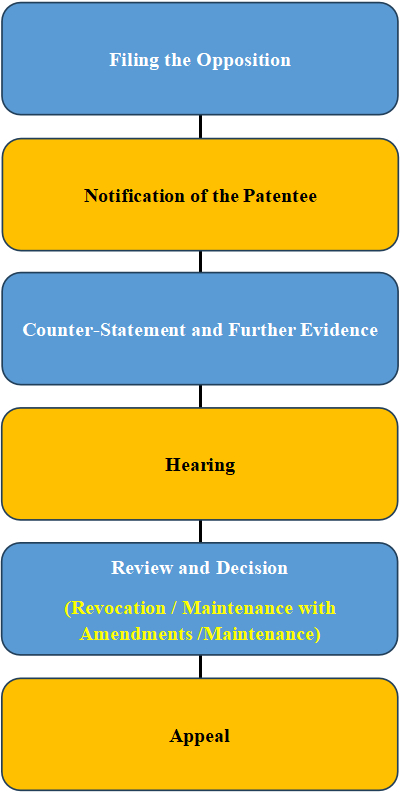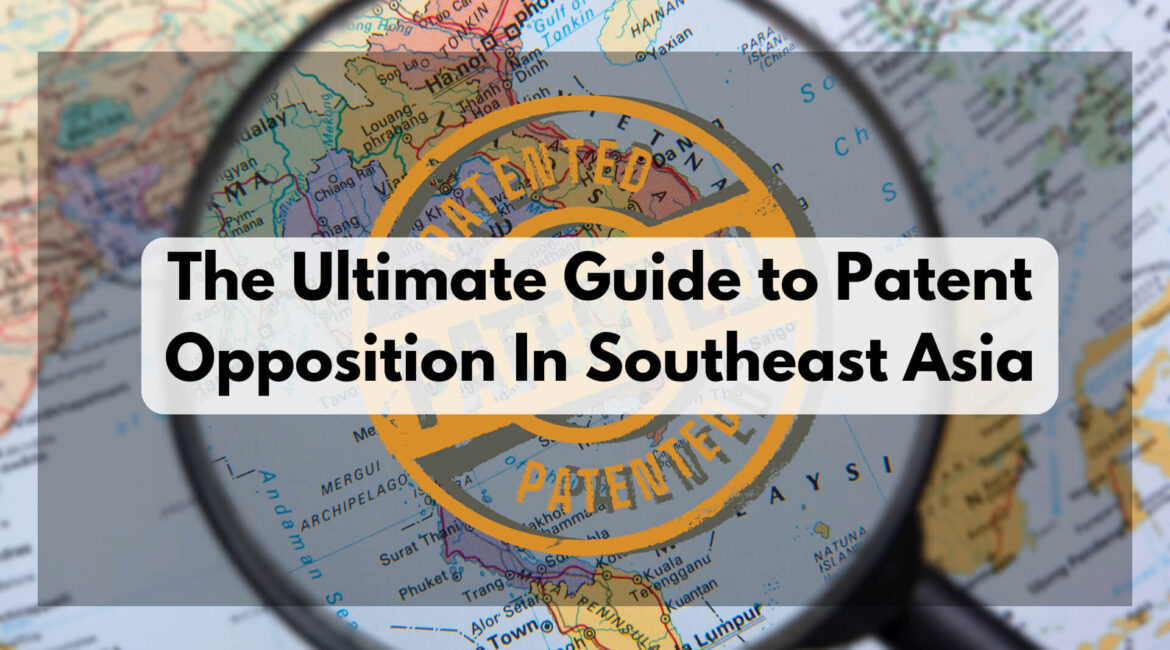The Ultimate Guide to Patent Opposition in Southeast Asia
Patent opposition lets you challenge weak or unfair patents to protect your business and market.
Patent opposition procedures are built into national IP systems to keep patent rights in check. They allow third parties to challenge applications or granted patents that may not meet the basic legal standards of novelty, inventive step, or industrial applicability.
Protect your business in Southeast Asia by challenging weak patents early. Patent opposition is a powerful tool that stops invalid patents from blocking your market and harming your growth. Here is what you need to know.
Why Patent Opposition Matters for Your Business?
Opposition serves not only as a legal safeguard but also as a valuable business strategy. By using opposition effectively, companies can protect their market position, reduce unnecessary risks, and prevent competitors from securing unfair advantages.
The main functions of opposition for businesses can be summarised as follows:
| Function | Why it Matters for Business |
|---|---|
| Protecting the public domain | Stops weak or overly broad patents from being granted or enforced. |
| Preserving competitive space | Keeps markets open, especially in fast-moving sectors like pharmaceuticals, technology, and consumer products. |
| Promoting genuine innovation | Ensures that only strong, valid patents remain in force. |
Last Updated: 15 October 2025
Disclaimer: The above table provides a general overview for informational purposes only and does not constitute legal advice.
Eligibility to File an Opposition
Who can file depends on the country. In some jurisdictions, only interested parties (e.g. competitors, associations, or licensees) can oppose. In others, any member of the public has the right to file. This wide standing reflects the strong public interest in keeping patent systems fair and balanced.
| Jurisdictional Approach | Who Can File? | Why This Matters? |
|---|---|---|
| Narrow Standing | Interested Parties only (e.g. competitors, associations, licensees) | Limits challenges to those with a direct commercial or legal interest |
| Broad Standing | Any member of the public | Protects the public interest by ensuring only valid patents are maintained |
Last Updated: 15 October 2025
Disclaimer: This table provides a general overview for informational purposes only and does not constitute legal advice.
General Steps in a Patent Opposition Procedure
While the exact procedure differs across SEA jurisdictions, the overall process usually follows a similar flow. Below is a simplified outline of the common stages, giving businesses a clear picture of how opposition typically works.

Last Updated: 15 October 2025
Disclaimer: This chart is a general overview. Procedures and timelines differ by country. Please consult a local IP professional before taking action.
Opposition Procedure in SEA
Patent opposition rules in SEA differ from country to country. Some jurisdictions allow objections before a patent is granted, while others only permit challenges after grant. The forum handling the process may also vary between IP Offices and the courts.
| Country | Opposition Type | General Timing | Main Authority |
|---|---|---|---|
| Malaysia | Post Grant Opposition / administrative re-examination and invalidation routes. | Post-grant procedures introduced under the Patents (Amendment) Act 2022; timing and steps are set out in MyIPO rules. | MyIPO / Registrar; court review possible. |
| Singapore | Third-party observations (pre-grant) and post-grant re-examination / revocation routes. | Third-party observations may be submitted during examination; post-grant re-examination/revocation procedures available under IPOS rules. | IPOS/ High Court |
| Thailand | Pre-grant opposition to published patent applications. | Typically, within 90 days from publication / notice; applicant may reply and submit evidence per DIP procedure. | DIP (IP Office) |
| Vietnam | Pre-grant opposition / third-party observations, post grant invalidation available. | Opposition generally within 9 months from publication and before decision to grant; third-party observations may be made during examination | NOIP (IP Office)/ courts for invalidation |
| Indonesia | Post-grant administrative appeal (appeal to Patent Appeal Commission) / later court invalidation. | Appeal against grant generally within 9 months from notification of grant; after that, court proceedings apply. | DGIP (IP Office) / Patent Appeal Commission; Commercial Court for later invalidation |
Last Updated:15 October 2025
Disclaimer: Laws, regulations, and office procedures may change over time. The information provided above is a general summary based on current practice and should not be considered legal advice. For specific guidance on filing timelines, required documents, and strategic advice, please consult qualified local counsel or IP professionals.
Is Patent Opposition Right for Your Business? Strategic Benefits & Practical Challenges
Patent opposition can be a powerful tool to protect your business, but like any strategy, it comes with its own set of benefits and challenges. Understanding both sides will help you take smart, timely action in Southeast Asia’s evolving patent landscape.
| ✔️ Benefits | ⚠️ Challenges |
|---|---|
| Protects your market share by blocking invalid patents. | Requires strong evidence and the burden of proof will be on you. |
| Cost-effective compared to full litigation. | Strict filing deadlines to watch for. |
| Encourages genuine innovation. | Procedures vary by country, complex regional rules. |
| Stops patent abuse like “evergreening”. | Risk of legal counteractions by the patent holder. |
| Supports fair competition and keeps markets open. | Often needs expert legal and technical support. |
Last Updated: 15 October 2025
Disclaimer: The information provided in this table is for general informational purposes only and does not constitute legal advice. Specific requirements and procedures may vary by jurisdiction. You should seek professional legal advice before taking any action based on this summary.
Conclusion: Take Control of Your Patent Strategy
Patent opposition is not just a legal formality; it is a strategic tool for forward-thinking businesses. Whether you are defending your innovations, challenging weak patents, or safeguarding your market position, taking timely action can make all the difference.
With varying rules across Southeast Asia, understanding the local procedures is essential to avoid costly mistakes, and seize opportunities.
Do not leave your competitive edge to chance.
Why Partner with Us?
Navigating patent opposition in Southeast Asia can be complex, but we are here to make it simple. Our expert team can guide you through the process, ensuring that your business is protected every step of the way.
Ready to take action? Contact us now to get started with a patent opposition strategy tailored to your business needs.

